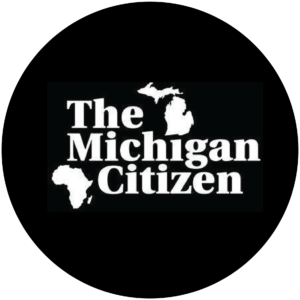 From the archives, but I feel it is poignant to share here and now. In December of 2012 I was asked to do a year in review piece for the deeply missed Michigan Citizen. I think it was due to a tight deadline they agreed to run something more personal. I feel I should update this as this really shaped my last eight years here on the Eastside. Thanks for reading,
From the archives, but I feel it is poignant to share here and now. In December of 2012 I was asked to do a year in review piece for the deeply missed Michigan Citizen. I think it was due to a tight deadline they agreed to run something more personal. I feel I should update this as this really shaped my last eight years here on the Eastside. Thanks for reading,
December 18, 2012
This is the latest in a series of columns discussing the Environmental Justice Principles drafted and adopted by delegates to the First National People of Color Environmental Leadership Summit held Oct. 24-27, 1991.
Dec. 18, 2012 – Peace. I write this 2012 ReView just days before the winter solstice, a day important to me personally because it is also the day that I was born, here in Detroit, in 1969. Maybe it is the nature of the season to be more reflective, but for this column I’m inclined to write more directly from my lived-experience and I appreciate the indulgence. The winter solstice, December 21, 2012, has also been blasted into popular culture due to the date being the end of the Mayan long-count calendar, with spiritual and secular speculation based on recent political and social events abound. You, the readers, have the advantage here for this will be published after the supposed apocalypse. I sincerely hope it went well for you and yours.
My personal interest, due to my birth, in 2012 phenomena has led me to a great deal of research, academic and experiential alike. This research along with a life-long interest in more sustainable, collective, communal yet autonomous/sovereign living and lifestyles has greatly informed the way that I’ve approached sharing in Detroit. I consider the 2012 phenomenon to be an ongoing non-time specific expression that is connected to and rooted in what I’ve begun to refer to as ‘emergent systems of governance’ These relationship-based hyper-localized, block-level models, techniques or ways that we can come together, appear to be fueling a paradigm shift, not only here in Detroit, but around the world.
In the last few years, I have been honored to witness this phenomenon happening across Detroit more regularly. People are coming together for a great many reasons and interests to share information, skills and food. Most importantly, in the last year, I’ve seen these gatherings, these actions, these learning circles, skill-shares, these exchanges begin to connect with and include leadership from block clubs, community groups and citizens who have traditionally been left out of decision making processes that directly impact them. To me this connection is vital for justice and balance to manifest and for the continuous displacement of peoples and the mining of resources and community assets to cease.
The meetings I attend are more frequently becoming transformative ceremonies where we come together, establish guidelines to keep everyone in our circle safe, express our assumptions and declare our intentions. We develop agreed upon principles and values, and from this space, this circle, together decide on next steps, actions and strategies. To me it is still relatively abstract and I’m certain I only see particular aspects of it, but these meetings appear as a model of governance, one that I comprehend, based on my lived expereince as being resonate with governance models accessed by indigenous and agricultural-based communities who are less dependent upon the global market. Here are some examples, expressed as perceptions to remain flexible, from the past few months in Detroit:
The evening of Monday, December 10th, I stood with 400+ Detroiters outside the East Lake Baptist Church waiting in the freezing cold to get into the Hantz Woodlands public hearing called by the Detroit City Council. When I finally made it inside I was pleased to find the large church hall filled with energy. As I walked through the crowds before the hearing, I witnessed great amounts of information about this land grab and about other, even more insulting and incendiary, deals on the horizon. I heard a great deal about “what’s goin’ on” being passed from one Detroiter to another. What I saw in that moment, before the public hearing even bagan, was very much a massive learning circle, an information exchange, with Detroiters sharing their opinions and lived-experience. I perceive Learning Circles and Popular/Community Education as integral to governance.
The public comments at the hearing were amazing, with almost every person who choose to speak at the mic sharing a different take on the deal in their own way. Some were prophetic and called on God and Spirit, some questioned the precedent the sale would make, some spoke their truth loudly and passionately while others were more reserved, and many rallied behind the concept that Detroiters can and should manage the land through a community land trust or other alternatives. Alternatives that will actually empower people where they are and as they are and respect the land itself. I perceive Public Comments and Community Voice as integral to governance.
In the weeks leading up to the public hearing, I was honored to assist in canvassing in the ‘footprint’ of the land grab. As our small and respectful crew of canvassers knocked on doors and passed out flyers at local stores we very quickly discovered that an insultingly small percentage of people living in the Hantz footprint were actually aware of the deal. Those who did know were not informed by Hantz or the Lower Eastside Action Plan (LEAP), who claim to be able to speak for this community, but rather through the media or their own non-LEAP aligned community groups. Those of us who canvassed were pleased to see many of the people whose doors we had knocked on at the Hantz public hearing. By respectfully and mindfully approaching the Detroiters most directly impacted by this deal, we managed to meet and support block-level community leaders who care deeply about their neighborhoods and the people who currently live there. I perceive respectful and organized Community Outreach and Canvassing as integral to governance.
The Hantz Groups’ marketing campaign around this land grab was massive. It took Detroit’s urban agriculture and community gardening movement through the mud, included numerous revisions of front-loaded visions, and extreme proliferation through national and global media. All this served to spread a great deal of irrelevant information and hype around this supposedly beneficent project. While Hantz’ constant redefinition of the ‘farm’ and his double speak around the project made it easy to critique it for what it was, a land grab, it also caused the need for a counter-media campaign that was extremely successful in creating community discussion through the twitter hashtags #HantzOff, #LandGrab and #DetroitFuture and through facebook. By documenting and sharing the voices of people most directly impacted and offering real time streams of information, community-driven media sources became popular locally and globally for those looking for the latest about the deal. I perceive Community-driven media, social networking and the collection of oral histories as integral to governance.
There are many other examples, pieces of the puzzle, that I’ve noted but do not have the space to discuss here. I am sure there are many more I’ve yet to see. Social system hackers like myself and others around the globe, study and research systems of movement and exchange, particularly of information and food, places where, and the ways that people gather, because many of us consider them to be where the magic happens.
As I comprehend it, and I strive to be flexible and as non-dogmatic as possible in this, it is through this coming together, healing and holding each other accountable that we can respectfully grow the greatest opportunity for the notion of a paradigm shift postulated by the 2012 phenomena. Fostering and supporting grassroots and community led expressions of these emergent methods and techniques flies directly in the face of neo-liberal, market-based economic policy and state-imposed austerity measures like right to work and emergency management. 2012 has been a year of emergence both locally and globally and though I cannot be certain of what is on the horizon, I am beginning to deeply posit emergent governance models and techniques as potential antidotes to emergency management and other forms of oppression. Respect and Gratitude.
– END-

